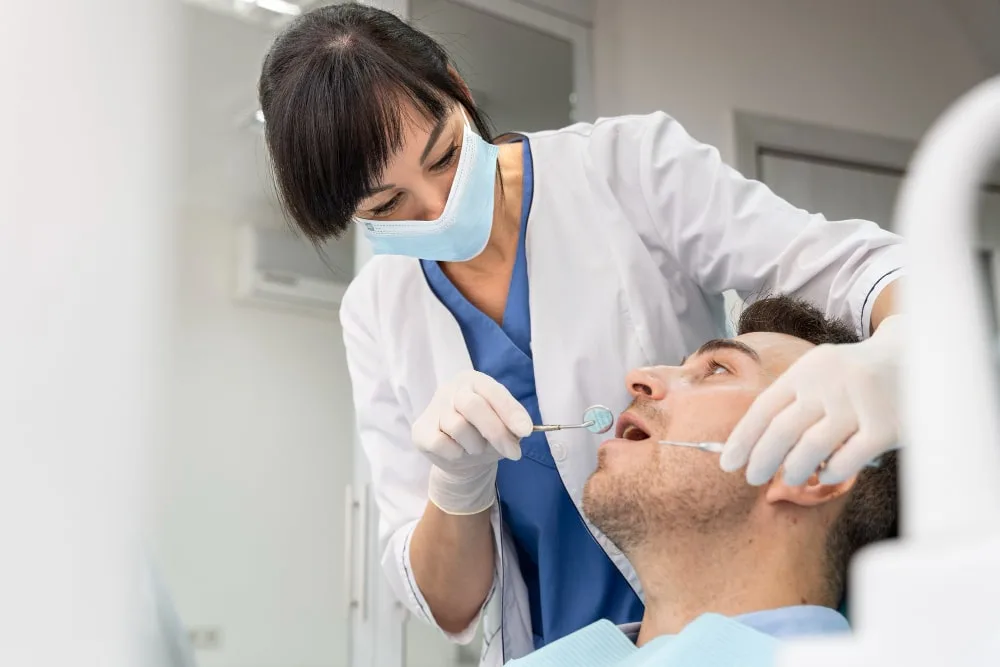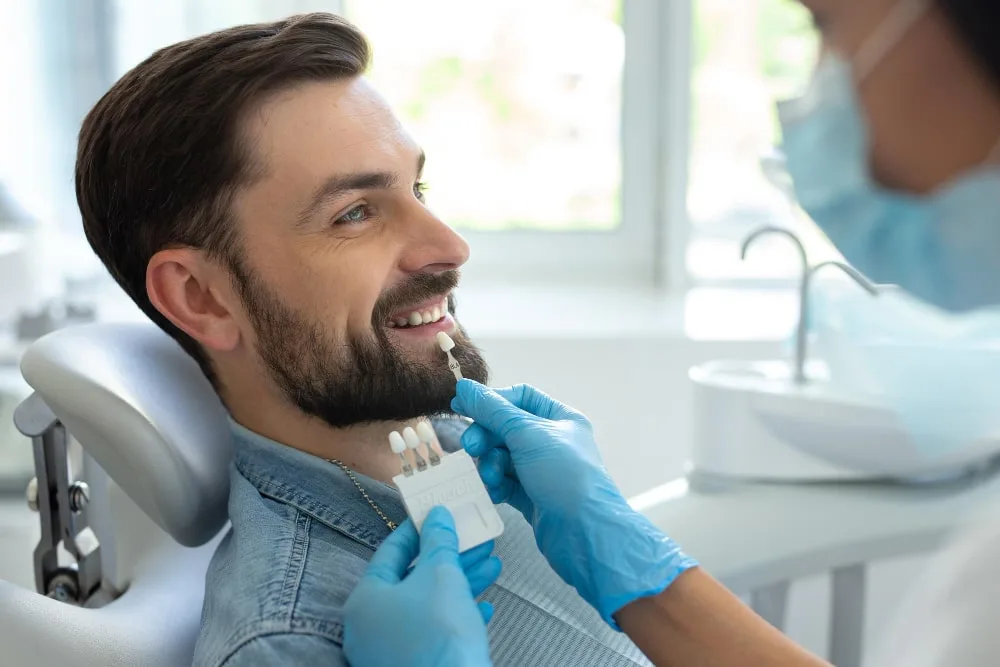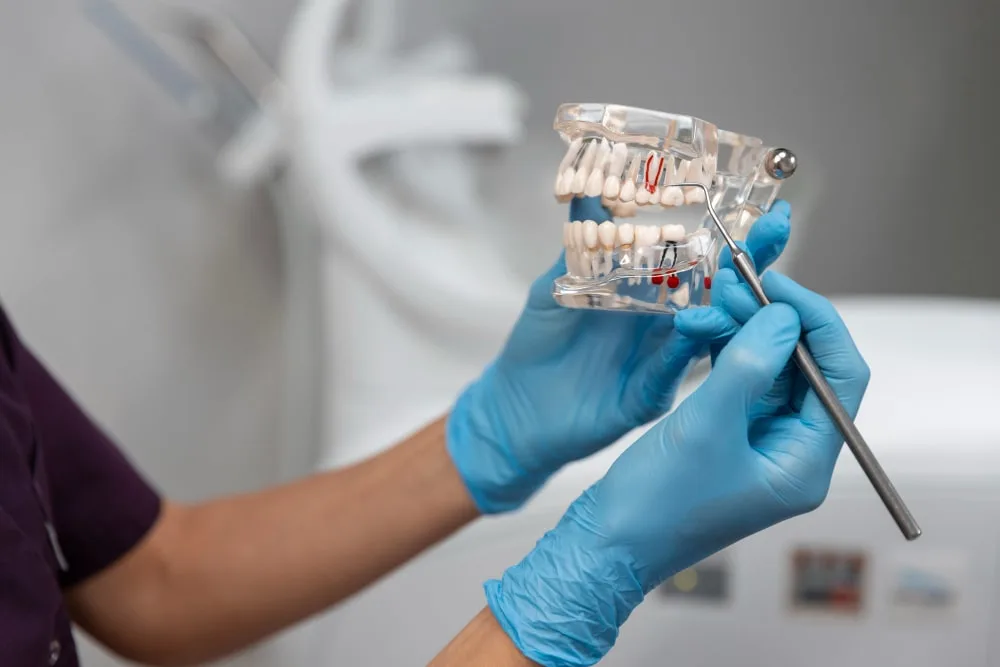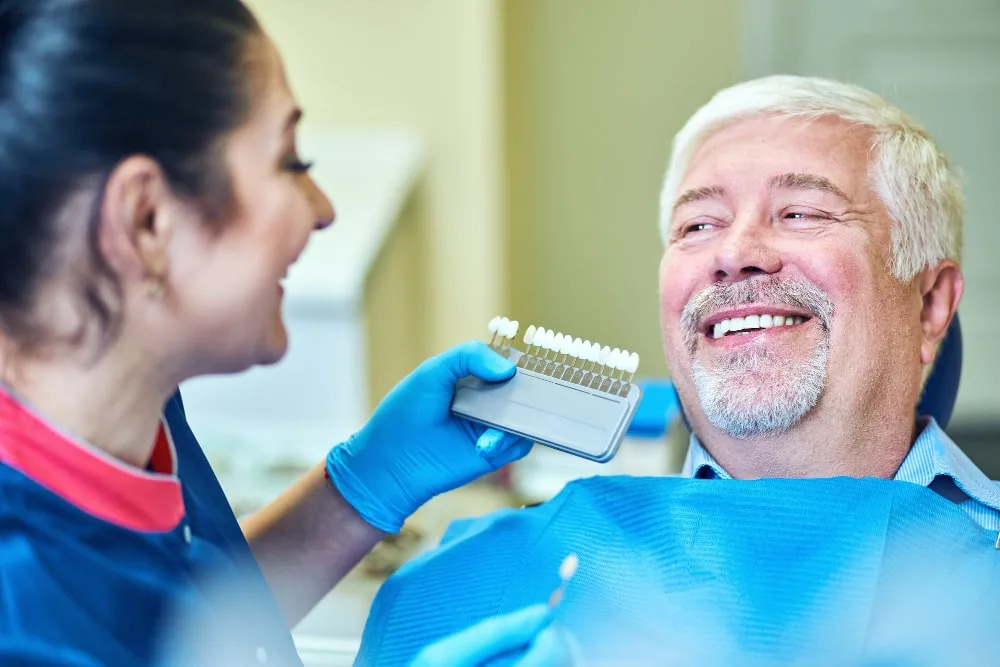Dental implants are designed to look, feel, and function like your natural teeth. They’re one of the most reliable ways to restore your smile after tooth loss. But like any dental treatment, implants require proper care, and yes, they can get infected if bacteria are allowed to build up around them.
As a periodontist, I often see patients who are surprised to learn that even a perfectly placed implant can develop an infection months or even years after healing. The good news is that with early attention and the right care, an infected implant can usually be saved.
What Is a Dental Implant Infection?
A dental implant infection, known as peri-implantitis, happens when bacteria collect around the gum and bone that support your implant. Over time, this can cause inflammation, gum recession, and even bone loss around the implant fixture.
The infection can begin shortly after surgery or appear long after the implant has healed — especially if oral hygiene habits slip or other health issues interfere with healing.
Why Do Dental Implants Get Infected?
Several factors can increase the risk of infection around an implant:
- Poor oral hygiene – Skipping brushing or flossing allows plaque to harden around the implant surface.
- Smoking – Tobacco weakens blood flow and makes it harder for the gums to heal.
- Diabetes or a weakened immune system – Slower healing and a higher chance of bacterial growth.
- Improper bite or grinding – Extra stress on the implant can irritate surrounding tissues.
- Low-quality implant materials or improper placement – These can create micro-gaps where bacteria thrive.
- Diet and lifestyle – High sugar intake, dehydration, or infrequent dental visits can also contribute.
Even if none of these apply, implants still need the same care as natural teeth — daily cleaning and regular check-ups.
Can It Happen Years Later?
Yes. Peri-implantitis doesn’t always appear right away. Sometimes, an implant functions perfectly for years before gum inflammation or bone loss begins. That’s why ongoing monitoring is just as important as the initial treatment.
Warning Signs of an Infected Dental Implant
Watch for these symptoms and contact your dentist promptly if you notice any:
- Red, swollen, or tender gums around the implant
- Bleeding while brushing or flossing
- Persistent bad breath or a foul taste
- Pus or discharge near the implant site
- Pain when chewing or biting
- A loose or wobbly implant
- Low-grade fever or general discomfort
Even mild symptoms can be a sign of early infection — and early care makes all the difference.
What to Do If You Suspect an Infection
Don’t wait for the pain to worsen. Schedule a visit as soon as possible. Your periodontist or implant specialist will:
- Examine and X-ray the area to check for inflammation or bone loss.
- Clean the implant surface using specialized tools or ultrasonic devices.
- Prescribe antibacterial rinses or antibiotics if necessary.
- Use laser or regenerative therapy to disinfect and promote healing.
- Perform minor surgery in advanced cases to restore bone or gum support.
The earlier treatment begins, the higher the chances of saving both the implant and surrounding tissues.
How to Prevent Dental Implant Infections
Prevention comes down to consistent care and professional monitoring:
- Brush twice a day and floss around your implant using an interdental brush or water flosser.
- Avoid smoking or vaping.
- Limit sugary foods and drinks.
- Stay hydrated to help your mouth flush away bacteria.
- Visit your dentist every 6 months — or more often if you’ve had previous gum problems.
Frequently Asked Questions
Can an implant infection heal on its own?
No. Unlike minor gum irritation, an implant infection will not go away without professional care. Ignoring it can lead to irreversible bone loss.
Is pain normal after implant surgery?
Mild discomfort for a few days is expected and part of healing. Persistent pain weeks or months later could signal infection.
Can an infection cause the implant to fail?
If untreated, yes. Infection can destroy the bone that anchors the implant, making it unstable.
The Bottom Line
Dental implant infections are uncommon but possible. Recognizing the early signs and seeking prompt treatment can protect your implant for years to come.
At Orchid Periodontics and Dental Implants in Edmonds, our focus is on prevention and minimally invasive care that helps patients maintain healthy, lasting smiles. If you suspect your implant might be infected, don’t wait — early attention can make all the difference.
Additional reads:
When Is It Too Late to Get Dental Implants? Understanding the Right Timing
Do They Put You to Sleep for Dental Implants? The Anesthesia Options Explained




